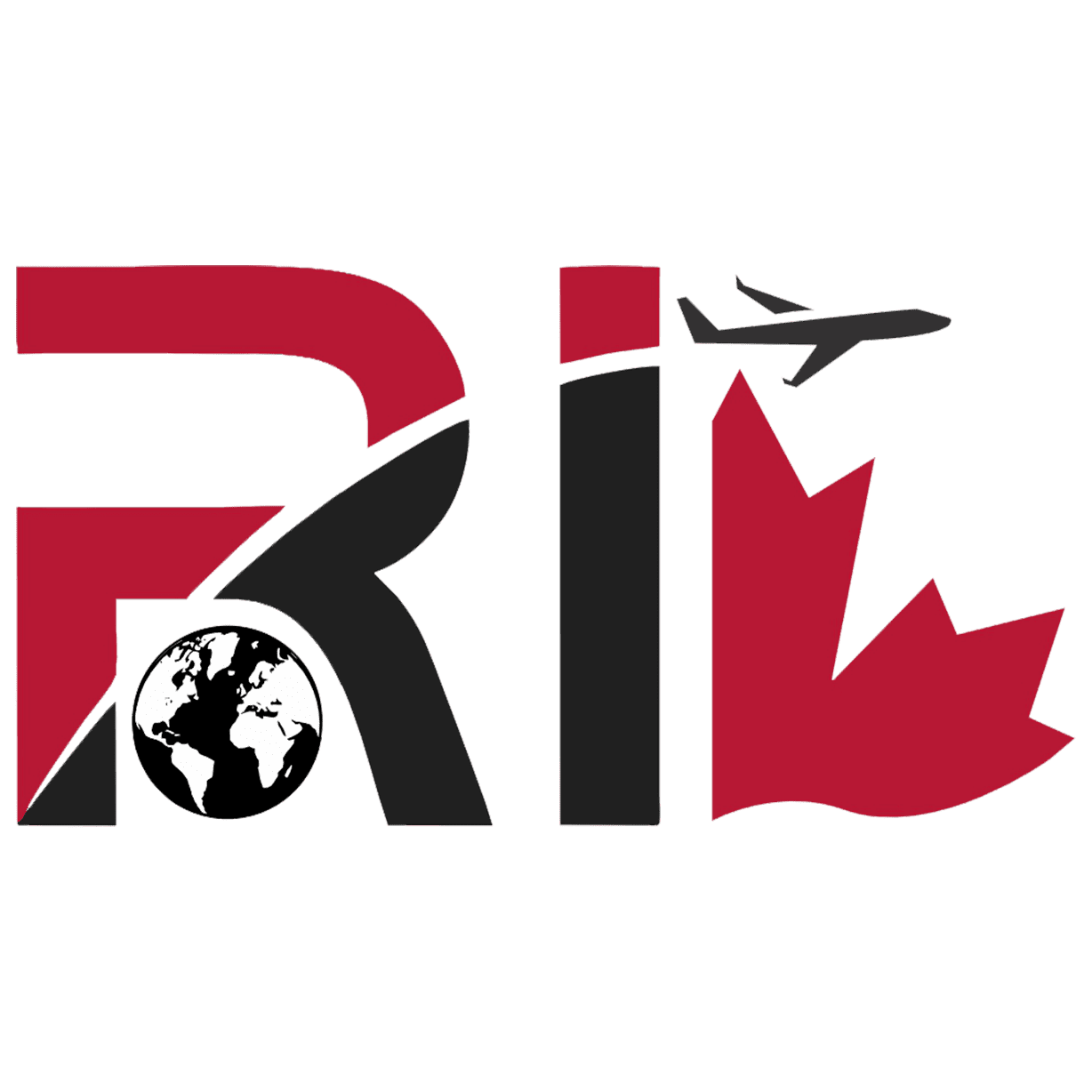Temporary Resident Visa
A Temporary Resident Visa (TRV), also referred to as a visitor visa, is an official document issued by a Canadian visa office that is placed in your passport to show that you have met the requirements for admission to Canada as a temporary resident (either as a visitor, a student, or a worker).
You must obtain a Temporary Resident Visa (TRV) before your departure. You cannot obtain one upon arrival in Canada
You must meet the requirements of the Immigration and Refugee Protection Act (IRPA) and the Immigration and Refugee Protection Regulations and that you will be in Canada for a temporary stay.
You must also:
- Satisfy an officer that you will leave Canada at the end of your stay,
- Show that you have enough money to maintain yourself and your family members in Canada and to return home,
- Not intend to work or study in Canada unless authorized to do so,
- Be law abiding and have no record of criminal activity,
- Not be a risk to the security of Canada,
- Provide any additional document requested by the officer to establish your admissibility, and
- Be in good health (complete a medical examination if required).
Your family members include your spouse or common-law partner, your dependent children and any children that are their dependent children
Family members must complete their own application forms. However, you may submit your applications together and use one payment receipt for the total amount.
Your spouse or common-law partner and children must meet all of the requirements for temporary residence in Canada.
No medical examination is needed when you plan to visit or study for six months or less
You will need a medical examination if you plan to visit or study for more than six months in a row and meet either of the below conditions:
- In certain countries or territories
- In the one year immediately before the date you want to enter Canada. (This applies even if you are a citizen of a country that does not need a visa to enter Canada.)
Regardless of the length of time you are in Canada, you will need a medical exam if you wish to work in one of the following fields
- A designated occupation, such as the field of health services or with children. Examples of designated occupations include hospital staff, clinical laboratory workers, patient attendants in nursing and geriatric homes, and medical an dental students admitted to attend Canadian universities;
- To work in agricultural occupations, you will need a medical exam if you have lived in certain countries or territories.countries or territories.
You may need to appear in person to have your fingerprints and photograph (biometric information) taken at a biometric collection service point. If your family members are also applying, they may need to appear in person to have their biometric information taken as well.
You only need to give your biometrics once every 10 years. You don’t need to give your biometrics again until the 10-year period expires.
If you gave biometrics in the past as part of an application for a visitor visa, work or study permit and they are still valid, you don’t need to give them again for this application.

Study Permit

The study permit is a document that allows foreign nationals to study at designated learning institutions (DLIs) in Canada. Most foreign nationals need a study permit to study in Canada. Make sure you have all the documents you need before you apply. You should apply before you travel to Canada
Your study permit is not a visa. It doesn’t let you enter Canada. You may also need a visitor visa or an electronic travel authorization (eTA)
You can come to Canada to study if you
- Are enrolled at a DLI
- Prove you have enough money to pay for
- Your tuition fees
- Living expenses for yourself and any family members who come with you to Canada and
- Return transportation for yourself and any family members who come with you to Canada
- Obey the law, have no criminal record and get a police certificate (if required)
- Are in good health and get a medical exam (if required) and
- Prove to an officer that you will leave Canada when your study permit expires
While studying in Canada you must make progress towards completing your program, respect any conditions listed on your study permit and stop studying if you no longer meet the requirements
Depending on your case, there may be conditions on your study permit such as if you’re allowed to work in Canada, if you’re allowed to travel within Canada, the specific date you must leave Canada, where you can study (a specific DLI listed on your permit) and You can’t study at a DLI other than the one listed on your permit,whether you need an immigration medical examination
There are 2 reasons you may want to get a study permit even if you don’t need one:
Continue Studying
If you already have a study permit and your study situation changes, you can continue studying in Canada while your permit is valid. For example, If you’re transitioning between levels of study (primary, secondary and post-secondary), you don’t need to apply for a new study permit if your current study permit is still valid.
If you apply to extend your permit before it expires, you have maintained your status and can continue studying while you wait for your new study permit. If your study permit extension is refused, you must stop studying.
Work On and Off Campus
If you have a study permit and you’re registered as a full-time student at a DLI, you may be able to work on-campusor off-campus. If so, your study permit will include a condition that says you’re allowed to work while studying.
If you don’t have a study permit, you can’t work while you’re studying in Canada. In this case, you need to apply for a work permit.
You need these documents to apply for a study permit:
- proof of acceptance
- proof of identity, and
- proof of financial support
You may also need a letter of explanation, a Québec Acceptance Certificate (CAQ), a custodian declaration (minors only)
We at Rational Immigration work tirelessly as we know how cumbersome and overwhelming it can be for you to get through the process of admission in a good Canadian DLI. With over 20 yrs of experience in the education sector our experts are equipped well to help you with the following:
† Study Permit Application
† Study Permit Extensions
† Navigate the schools
† Identify the programs based on your academic and professional background
† Admission Requirements
† English Proficiency RequirementsIELTS/Toefl/CELPIP Coaching
Work Permit
Most people need a work permit to work in Canada. If you need a work permit, you may be eligible for either a :
- Closed Work Permit- Employer-specific work permit
- Open work permit - Allows you to work for any employer in any location in Canada
- Bridging Open Work Permit
- Work Permit Extension
- International Experience Class
- Work Permits under different Trade Agreements
We at Rational Immigration work tirelessly as we know how cumbersome and overwhelming it can be for you to get through the process. we can help you in determining your eligibility and help you guide through the process for the specific type of Work Permit application for which you would meet the criteria

Spousal Open Work Permit

An Open Work Permit (OWP) authorizes a foreigner to work in Canada in ANY job, without restrictions. The holder of an OWP does not need an LMIA or confirmation of employment first. Once issued an OWP, the holder can apply and work in any job/occupation in Canada.
For spouses and common-law partners, open work permits are generally issued with a validity date that coincides with the period of time that their spouse is permitted to work or study in Canada, as the case may be.
Eligibility for Spousal Open Work permit:
Inland Sponsorship
Spouses and common-law partners being sponsored through the Inland Spousal/Common-Law Partner Sponsorship Category of the Family Class can be granted an open work permit while the application for permanent residence is being processed. This allows the Spouse/Common-law partner to work in any job while waiting for permanent residence application to be processed.
Spouse/Common-law of Temporary Foreign WorkerSpouse or common-law partner of a foreign temporary worker must demonstrate that:
The principal temporary foreign worker has employment in Canada that is at a management level, or a job in a professional occupation, or as a technical or skilled tradesperson. In other words, the skill level of the principal temporary foreign worker’s job must be level 0, A or B, according to the National Occupational Classification (NOC). This skill level requirement does not apply to principal temporary foreign workers who have been nominated for permanent residence by a province (provincial nominees).
- The principal temporary foreign worker is permitted to work in Canada for a period of at least six months.
Spouse or common-law partner of a foreign temporary worker must demonstrate that:
The principal temporary foreign worker has employment in Canada that is at a management level, or a job in a professional occupation, or as a technical or skilled tradesperson. In other words, the skill level of the principal temporary foreign worker’s job must be level 0, A or B, according to the National Occupational Classification (NOC). This skill level requirement does not apply to principal temporary foreign workers who have been nominated for permanent residence by a province (provincial nominees).
- The principal temporary foreign worker is permitted to work in Canada for a period of at least six months.
Spouse/Common-law partner of Foreign Student
To be eligible for an Open Work Permit, the spouse or common-law partner of a foreign student cannot themselves be full-time students and must demonstrate that:
Foreign student is studying full-time at a diploma/degree-granting, publicly-funded post-secondary educational facility
- Foreign student has graduated and is the holder of a valid work permit for a job related to his or her studies
Permanent Residency
Permanent residency in Canada is a status granting someone who is not a Canadian citizen the right to live and work in Canada without any time limit on their stay. To become a permanent resident a foreign national must apply to Immigration, Refugees and Citizenship Canada (IRCC), formerly known as Citizenship and Immigration Canada, under one of several programs.
In addition to the conferred right of abode in Canada, a primary benefit of permanent residency is the eligibility to apply for Canadian citizenship after a certain period of permanent residency.
A Permanent Resident holds many of the same rights and responsibilities as a Canadian citizen, including the right to live, work (subject to some restrictions), and study in any province or territory of Canada.
Permanent residents participate in many of the same social benefits that Canadian citizens receive, including becoming contributing members of the Canada Pension Plan and receiving coverage by their province or territory's universal health care system.
All Permanent Residents may avail themselves of the rights, freedoms, and protections of the Canadian Charter of Rights and Freedoms, other than those exclusively granted to citizens.

Super Visa for Parents and Grandparents

A great way to bring Parents and Grandparents to Canada is through the Super Visa program. A Super Visa now lets you visit your children or grandchildren for upto 5 years at a time. It's a visa that provides multiple entries for a period of 10 years.
This is an ideal option for Canadian Citizens and Canadian Permanent Residents who are waiting to sponsor their parents for PR, or who currently do not qualify for Parental PR sponsorship.
- Be the parent or grandparent of a Canadian Citizen or a Permanent Resident of Canada
- The sponsor must meet the minimum necessary income (for Super Visa) requirement, and provide Canadian tax return (Notice of assessment) or T4/T1 for the most recent tax year.
- Have a medical insurance from a Canadian insurance company that is :
- of at least $100,000 emergency coverage (approximately $2,000 - $3,000 CAD per year)
- valid for at least 1 year from the date of entry
- have proof that the medical insurance has been paid in full (Quotes aren't accepted)
- Complete a medical examination.
- Have a signed letter from your Sponsor (child or grandchild) who invites you to Canada that includes:
- a promise of financial support for the length of your visit
- the list and number of people in the household of this person
- a copy of this person's Canadian Citizenship Or Permanent Resident Document
- You MUST also :
- apply for supervisa from outside Canada
- have your visa printed outside Canada ( wait for visa office instructions)
- be allowed to enter Canada
- meet certain other conditions
Minimum Necessary Income to sponsor for Super Visa Effective January 1 to December 31, 2022:
| Number of Family Members | Minimum Necessary Gross Income |
| 1 (your child or grandchild) | $26,620 |
| 2 | $33,140 |
| 3 | $40,742 |
| 4 | $49,466 |
| 5 | $56,104 |
| 6 | $63,276 |
| 7 | $70,448 |
| More than 7 persons, Each Additional Person, add | $7,172 |
Business Visa
Through its various business immigration programs, Canada aims to attract individuals that have a significant ability to contribute to the economy. These programs are offered with the goal of promoting economic development by attracting investors, entrepreneurs, and self-employed individuals with available venture capital, significant business acumen, and entrepreneurial skills.
These programs also seek to develop new commercial opportunities in Canada and to improve Canada's access to growing international markets by welcoming immigrants who are familiar with those markets and their unique requirements and customs.
If business immigration sounds well-suited to your experience and goals, there are numerous pathways from which to choose. Depending on where you plan to reside, you may choose to apply through one of the programs offered by a particular province, such as the Quebec business immigration programs, or by the federal government.

Family Sponsorship

Family sponsorship is a way to reunite families in Canada. In fact, the Canadian government believes in keeping families together, and prioritizes the processing of sponsorship applications. There are many options for family members that are Canadian citizens or permanent residents to sponsor a family member living abroad, to become a permanent resident in Canada.
The Canadian family member may sponsor:
- His or her spouse
- Common-law partner
- Conjugal partner
- Dependent child
- Adopted children
- Parents
- Grandparents
In addition to being a Canadian citizen or permanent resident, the sponsor must also fulfill a few other requirements in order to be eligible. The sponsor must:
- Prove that they will be able to financially support their family member and any dependent, if necessary
- Enter into an agreement with the Government of Canada or Quebec, as well as the sponsored relative, where the sponsor will agree to support the family member for a certain amount of time. The sponsored relative must make an effort to support themselves, as well.
- Either reside in Canada prove their intention to live in Canada when the sponsored relative arrives in Canada
- Be at least 18 years old
- Not be incarcerated or charged with a serious offence
- Not be bankrupt
- Not be under a removal order if a Permanent Resident
Caregiver/Nanny Visa
The National Occupation Classification (NOC) code (Effective Nov 16, 2022) for the occupation
Home Child Care Provider - 4411/44100
Home Support Worker - 4412/44101
For a foreign worker who wants to immigrate to Canada as a nanny, the government offers the chance to become a permanent resident after he or she has worked as a caregiver for two years. Immigration streams for caregivers include:
- Home Child Care Provider Pilot -
- the pilot is closed to new applications for 2022 but it will REOPEN to new applications on Jan 1, 2023
- Home Support Worker Pilot
- Live-In Caregiver Program (LCP) (currently closed to new applicants)
The government created a live-in caregiver program specifically to help workers from outside the country to work as caregivers to address the shortage of domestic help in the country. This same program allows caregivers and nannies to apply for residency after two years of working as a caregiver.
As the Canadian government has stopped accepting new applicants, you can now only apply to be a permanent resident if you have worked in Canada for at least two years with an LCP work permit or if your first LCP work permit was granted using an LMIA submitted on or before November 30, 2014.
Eligibility
If you are already part of the Live-in Caregiver Program, you can continue to work as a nanny under this program. You’ll need a new work permit, but the other requirements remain the same:
- An education equivalent to a Canadian secondary school diploma
- A minimum of either of the following: six months of full-time classroom training in caregiving, or a year of work experience as a caregiver or in a related job within the last three years (including at least six months of ongoing work with one employer)
- The ability to speak, read and understand one of Canada’s official languages (English or French)
- Medical, security, and criminal clearances
- A signed written employment contract from a Canadian employer

Express Entry
Express Entry



Express Entry is a selection system the Canadian Government implemented to expedite the Permanent Resident visa process for various Economic Immigration Programs. It is an electronic process with online submissions which allows for quicker processing times, averaging around 6 months.
The following programs are processed by Express Entry:
Federal Skilled Worker (FSW)
The Federal Skilled Worker program is part of the Economic Class and this is managed by the Express Entry program. Approximate processing times are currently 6 months once an Invitation to Apply (ITA) is received
- Have professional work experience of at least one continuous year of full-time paid work experience or the equivalent in part-time continuous employment listed in the National Occupational Classification (O, A or B) in the last 10 years. OR Qualify for arranged employment in Canada with a full-time, permanent job offer from a Canadian employer along with a Labor Market Impact Assessment (LMIA) or without an LMIA if you are an exempt
- A Canadian diploma, certificate, or credential AND/OR a foreign educational credential, and an Educational Credential Assessment (ECA) by an agency approved by IRCC to show it is equal to a completed Canadian secondary or post-secondary educational credential.
- Meet the minimum language scores of CLB 7 on the Canadian Language Benchmark, or equivalent.
- Have settlement funds to support yourself and your family for six months after arrival in Canada.
You must also score a minimum of 67 points under the following IRCC selection factors in order to be eligible to apply
| Factor | Maximum Points | Criteria Determination |
| Education | 25 | Years of study and diploma or degree obtained |
| Language | 28 | Level of English or French ( IELTS or TEF ) |
| Experience | 15 | Years of professional work experience |
| Age | 12 | Age of the principal applicant |
| Arranged Employment | 10 | Having a valid job offer |
| Adaptability | 10 | Points for several factors that could help the applicant adapt to Canadian life |
Once selected from the Express entry Pool and awarded with an Invitation to Apply (ITA), candidates and their dependents must also undergo medical examinations and obtain security clearances as part of the Canadian immigration application process.
Federal Skilled Trades Class (FST)
The Federal Skilled Trade Class is part of the economic class and this is managed by the express entry program. Approximate processing times are currently 6 months once an Invitation to apply (ITA) is received
- Have offers of employment from up to two employers in Canada of at least one year duration (accompanied by an LMIA) OR a Certificate of Qualification from a provincial or territorial body
- Meets the minimum language score of CLB 5 for speaking and listening, CLB 4 for reading and writing
- Have obtained 24 months of qualified work experience in the skilled trade in the last five years
- Be qualified to meet the requirements of the job offer(s) or trade in Canada, as defined by the NOC
This amounts to a total of 90 eligible NOC Level B occupations. These eligible occupations fall into the following general categories:
- Industrial, electrical and construction trades
- Maintenance and equipment operation trades
- Supervisors and technical occupations in national resources, agriculture and related production
- Processing, manufacturing and utilities supervisors and central control operators
- Chefs and cooks
- Butchers and bakers
Trade certification in Canada falls under provincial jurisdiction. Each province outlines which professions will be regulated and establishes regulatory bodies where applicable. Provincial certification is often difficult to obtain from outside Canada and accordingly this program will be most beneficial to tradespeople who obtain an approved offer of employment from a recognized employer, or who are already working in Canada as temporary foreign workers. Not all trades are regulated in all of the provinces. Where a trade is not regulated, an offer of employment becomes mandatory.
Trades people who obtain an approved offer of employment for one year or more in their trade from a Canadian employer are also eligible to apply. The offer of employment will be evaluated to ensure that it is an eligible trade and that the hiring will have a neutral effect on the Canadian Labour Market.
Once selected from the Express entry Pool and awarded with an Invitation to Apply (ITA), candidates and their dependents must also undergo medical examinations and obtain security clearances as part of the Canadian immigration application process.
Canadian Experience Class (CEC)
The Canadian Experience Class is part of the Economic Class and this is managed by the express entry program. Approximate processing times are currently 6 months once an Invitation to Apply (ITA) is received
- Have obtained at least one year of full-time skilled, professional or technical work experience in Canada within 36 months of the application date. Self-Employment or work experience gained while being a full-time student does not count
- The job experience is in a Managerial job (NOC skill level 0), Professional job (NOC skill type A), Technical jobs and skilled trades (NOC skill type B)
- Meet the minimum language of CLB 5 or CLB 7 on the Canadian Language Benchmark, depending on the level of the job
- Plan to live and work outside of the province of Quebec (individuals with work experience in Quebec and who plan to reside in Quebec may apply to the Quebec Experience Class)
Once selected from the Express entry Pool and awarded with an Invitation to Apply (ITA), candidates and their dependents must also undergo medical examinations and obtain security clearances as part of the Canadian immigration application process.
The Canadian Experience Class offers students with Canadian work experience the fastest and simplest path to achieving permanent residence.
After completing a program or course of study at a Canadian educational institution, international graduates are able to remain in the country and work on post-graduate work permits. Once a graduate obtains at least one year of Canadian work experience in a skilled, professional or technical field, they may then become eligible to apply under the Canadian Experience Class.
Provincial Nominee Programs (PNP)
The Provincial Nominee Programs (PNP) allow Canadian provinces and territories to nominate individuals who wish to immigrate to Canada and who are interested in settling in a particular province.
Each Canadian province except Quebec, which has a different selection system and two territories have their own unique Provincial Nominee Programs. Participating provinces and territories sign agreements with IRCC that allow them to select immigrants who meet the requirements that they have set forth.
Provinces with PNP programs each have their own selection criteria to find immigrants with skills that the province needs which they cannot hire locally. The selection criteria and occupations vary across provinces from information technology, medical, agriculture, trades, business, investors, and people who have ties to Canada.
Candidates must first be entered into the Express Entry System with their CRS score, then apply to a PNP program (which is a separate application). You will remain in the Express Entry pool for a year, or until you are selected to apply for Permanent Residence.
After the province processes your PNP application (typically 3-4 months), you will be granted 600 points to add to your Express Entry score. With these additional 600 points, you will be selected and invited to apply for PR at the very next draw, which occurs every 2 weeks.
Once a Provincial Nominee Certificate is granted, you receive 600 point that goes towards your express entry score.
- On average, individuals without a PNP certificate will score between 300 and 500.
- The most recent cut off scores to be selected for Express Entry have been in the 400 - 500 range.
- Individuals with a PNP Certificate automatically are granted 600 points to add to their Express Entry core of 300-500 points.
- The PNP certificate would give a final Express Entry score above 900 which is significantly higher than the current cutoff selection score of around 400-500 points.
| Program | Program Details |
| Manitoba PNP | If you have a close relative living in the Manitoba province, you may be eligible to apply to this PNP program for having a "connection to Manitoba If you have a; brother or sister, aunt or uncle, nephew or niece, first cousin, mother or father, grandmother or grandfather living in the province, you may be eligible to apply for a PNP. We will need to assess you to determine if you are a strong candidate, as this PNP has their own scoring and selection system similar to Express Entry. Currently, you would need a score above 530 to be a strong candidate. |
| New Brunswick PNP | If you have a close relative living in New Brunswick province, you may be eligible to apply for this PNP. If you have a; brother or sister, aunt or uncle, nephew or niece, first cousin, mother or father, grandmother or grandfather living in the province, you may be eligible to apply for a PNP. |
Each province in Canada is looking for candidates with skilled job experience to fill labour shortages in their province. The list of occupations vary from province to province, depending on their needs. If you are granted a PNP nomination, you most likely will be able to find a job since you are granted a PNP for a job category where their is a shortage of your skill set.
If you have job experience in one of the categories below and you are interested in applying for Permanent Residence in Canada, please contact us for assistance. It is not a straightforward process and we can help you get PR under these PNP programs.
| Category | Occupation |
| Administrative Assistants | Administrative assistants |
| Aerospace | Professional occupations in advertising, marketing and public relations |
| Advertising and Marketing | Professional occupations in advertising, marketing and public relations |
| Agriculture | Landscape and horticulture technicians and specialists Managers in agriculture |
| Engineers | Civil Engineers Civil Engineering Technologists and Technicians Drafting Technologists and Technicians Mechanical Engineers Mechanical Engineering Technologists and Technicians |
| Finance and Accounting | Accounting and related clerks Financial Auditors and Accountants Financial and Investment Analysts Financial Sales Representatives Other Financial Officers Mathematicians, statisticians and actuaries |
| Information Technology | Computer Programmers and Interactive Media Developers Computer Network Technician Information Systems Analysts and Consultants Health information management occupations User Support Technicians |
| Law | Paralegal and related occupations |
| Medicine and Health | Biological technologists and technicians Health information management occupations Licensed Practical Nurses Registered Nurses |
| Teacher | College and other vocational instructor |
| Trades | Appliance servicers and repairers Automotive service technicians, truck and bus mechanics and mechanical repairers Heavy-duty equipment mechanics |
| Miscellaneous | Facility operation and maintenance managers Geoscientists and Oceanographers Managers in social, community and correctional services Social and community service workers Property administrators Recreation, sports and fitness program and service directors Technical occupations in geomantic and meteorology |
Canadian Citizenship
Canada offers one of the most open citizenship policies in the world. As such, hundreds of thousands of people become eligible for Canadian citizenship each year and over 85% of permanent residents become Canadians.
Becoming eligible for Canadian citizenship entails the likes of meeting residency requirements, being able to speak English and/or French, and not having a criminal history considered prohibitive to becoming a citizen.
Requirements
- Be a permanent resident
- Meet Canada's physical presence requirements
- File your taxes (if necessary)
- Pass a Canadian citizenship test (if you are between the ages of 18-54)
- Prove your language skills (if you are between the ages of 18-54)

LMIA/ Non-LMIA Applications

A Labour Market Impact Assessment (LMIA) is a document that an employer in Canada mayneed to get before hiring a foreign worker.
A positive LMIA will show that there is a need for a foreign worker to fill the job. It will also show that no Canadian worker or permanent resident is available to do the job. A positive LMIA is sometimes called a confirmation letter.
If the employer needs an LMIA, they must apply for one. Once an employer gets the LMIA, the worker can apply for a work permit.
To apply for a work permit, a worker needs
- The job offer letter
- The contract
- The copy of the LMIA
- LMIA number
